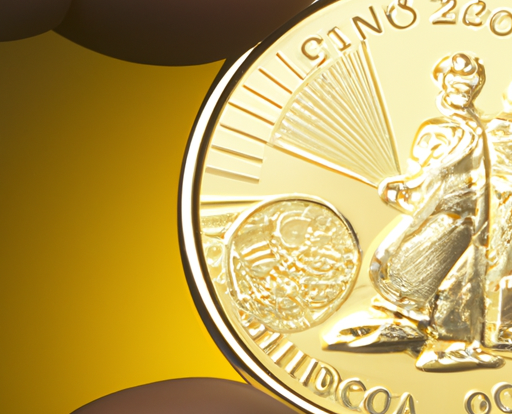
If you’re new to the world of investing and looking to add some shine to your portfolio, then this article is for you. Gold has always held a certain allure for investors, but it can seem daunting to navigate the complexities of this precious metal. Fret not, as we’ve got you covered with 10 gold investing tips specifically designed for inexperienced investors like yourself. Whether you’re looking to diversify your holdings or hedge against market volatility, these tips will help you make informed and confident decisions when it comes to your gold investments. So grab your notepad and get ready to unlock the secrets of gold investing!

This image is property of www.fortunebuilders.com.
Understanding the Basics of Gold Investing
Investing in gold involves buying and holding gold as a long-term asset to potentially benefit from its value appreciation. Gold has been a sought-after precious metal for centuries and has proven to be a reliable store of value. Whether you’re new to investing or looking to diversify your portfolio, understanding the basics of gold investing is essential.
What is gold investing?
Gold investing refers to the act of purchasing gold for the purpose of holding it as an investment. This can be done in various forms, such as physical gold bars or coins, gold Exchange-Traded Funds (ETFs), gold mining stocks, or gold mutual funds. The primary objective of gold investing is to potentially profit from the increase in the value of gold over time.
Why invest in gold?
Investing in gold offers several unique advantages. Firstly, gold has historically maintained its value and has even appreciated during times of economic uncertainty. It serves as a hedge against inflation and currency devaluation, making it a reliable store of wealth. Secondly, gold has a long-standing reputation as a safe haven asset, meaning it tends to perform well during times of market turbulence. Lastly, gold has a global market and is considered a highly liquid asset, making it easy to buy and sell.
Different forms of gold investments
When it comes to investing in gold, there are several options to choose from. Physical gold, such as bars or coins, allows you to have direct ownership and possession of the gold. Gold ETFs are exchange-traded funds that track the price of gold and can be bought and sold like stocks. Investing in gold mining stocks involves purchasing shares of gold mining companies, which allows you to indirectly benefit from the performance of the gold industry. Lastly, gold mutual funds pool investments from multiple investors and invest in a diversified portfolio of gold-related assets.
Determining Your Investment Goals
Before diving into gold investing, it’s important to assess and determine your investment goals.
Short-term vs. long-term investment goals
Consider whether your investment objective is short-term or long-term. Short-term goals typically involve capitalizing on short-lived market trends or taking advantage of price fluctuations. On the other hand, long-term goals focus on wealth preservation and steadily increasing the value of your investment over time. Understanding your time horizon will help you determine the most suitable gold investment strategy.
Risk tolerance and diversification
Evaluating your risk tolerance is crucial in any investment decision. Gold investments, like any other type of investment, come with some level of risk. While gold is generally considered a safe haven asset, its value can still fluctuate. If you have a low risk tolerance, you may opt for more conservative gold investment options, such as physical gold or gold ETFs. Diversification also plays a key role in mitigating risk. By spreading your investments across different asset classes, including gold, you can reduce the potential impact of a single investment’s performance on your overall portfolio.
Considering inflation and economic factors
Inflation and economic factors can significantly impact the value of your investments, including gold. Gold has historically been known as a hedge against inflation, as its value tends to rise along with the cost of living. When assessing your investment goals, it’s important to take into account the current economic climate and consider how factors like interest rates, government policies, and global events may influence the value of your gold investments.

This image is property of etstatic.tnn.in.
Researching the Market
To make informed decisions and maximize your gold investing potential, it’s essential to research and stay updated on the market.
Tracking gold prices and trends
Monitoring the price of gold is crucial in understanding its market dynamics. There are various websites and financial news sources that provide real-time gold prices. By keeping an eye on price trends, you can identify patterns and make more informed decisions on when to buy or sell your gold investments.
Understanding market indicators and factors
Gold prices are influenced by a variety of factors, including supply and demand dynamics, interest rates, geopolitical tensions, and overall market sentiment. Familiarize yourself with these market indicators to gain a better understanding of how they may impact the value of your gold investments. Stay updated with economic news, global events, and expert analysis to identify potential opportunities or risks.
Evaluating geopolitical and economic climate
Geopolitical tensions and economic factors can have a significant impact on the value of gold. Uncertainty or instability in the global economy often leads investors to seek the security of gold, driving up its price. Stay informed about geopolitical events, economic policies, and macroeconomic trends to better gauge the potential direction of the gold market.
Choosing the Right Investment Method
Once you’ve established your investment goals and conducted thorough market research, it’s time to choose the right investment method for your needs.
Physical gold vs. gold ETFs
Physical gold, such as bars or coins, allows you to have direct ownership and possession of the precious metal. This investment method is ideal for those seeking the security and tangibility of owning physical assets. However, physical gold may require additional costs for storage and insurance. On the other hand, gold ETFs provide exposure to gold prices without the need for physical ownership. They are traded on stock exchanges, offering liquidity and convenience.
Investing in gold mining stocks
Investing in gold mining stocks allows you to indirectly benefit from the performance of the gold industry. When selecting gold mining stocks, consider factors such as the company’s financial health, production levels, and management team. It’s important to note that investing in individual stocks carries its own risks, including company-specific factors that may impact their value.
Exploring gold mutual funds
Gold mutual funds pool investments from multiple individuals and invest in a diversified portfolio of gold-related assets. This method provides a level of diversification, as the fund manager allocates investments across various gold and gold-related securities. Mutual funds may be suitable for investors who prefer a hands-off approach or lack the time and expertise to actively manage their gold investments.

This image is property of learn.apmex.com.
Setting a Budget and Investment Amount
Before entering the gold market, it’s essential to determine your budget and the amount you’re willing to invest.
Determining the affordability of gold investing
Gold investing can require a significant upfront investment, depending on the type and quantity of gold you wish to purchase. Evaluate your financial situation and consider whether you can comfortably allocate funds towards gold investments without jeopardizing your overall financial stability.
Allocating a portion of your investment portfolio
Gold investments should be part of a well-diversified investment portfolio. Consider what percentage of your total portfolio you are willing to allocate towards gold. Financial experts often recommend that gold investments make up around 5-10% of a well-diversified portfolio to provide a balance between risk and potential returns.
Avoiding overexposure to gold
While gold can be a valuable addition to a portfolio, overexposure to any single asset class can be risky. Diversify your investments across different asset classes, such as stocks, bonds, and real estate. This helps to mitigate risk and decrease the impact of a single asset’s performance on your overall portfolio.
Understanding the Risks and Benefits
Before investing in gold, it’s important to have a clear understanding of the risks and benefits associated with this type of investment.
Volatility and price fluctuations
While gold is often considered a safe haven asset, its value can still experience volatility and price fluctuations. Market conditions, geopolitical events, and economic factors can impact the price of gold. It’s important to be prepared for potential short-term fluctuations in value while focusing on the long-term potential of gold as a store of value.
Hedge against inflation and currency devaluation
One of the key benefits of investing in gold is its ability to act as a hedge against inflation and currency devaluation. During periods of rising inflation or weakening currency, the value of gold tends to rise, helping to preserve purchasing power. Holding gold can provide a sense of security during times of economic uncertainty.
Liquidity and accessibility of gold investments
Gold, especially in its physical form, is a highly liquid asset. It can be easily bought or sold on the open market. Additionally, gold ETFs and gold mutual funds offer convenient ways to invest in gold without the need to physically hold the precious metal. This accessibility allows investors to quickly convert their gold investments into cash when needed.

This image is property of www.tapscape.com.
Gold Storage and Security
When investing in physical gold, ensuring its safe storage and security is of utmost importance.
Choosing a secure storage option
Physical gold should be stored in a secure and reputable location. Consider options such as a bank safety deposit box, a private vault, or a trusted storage facility. These options provide added security against theft or loss, ensuring the protection of your investment.
Insurance and protection against theft or loss
When storing physical gold, it’s wise to have appropriate insurance coverage in case of theft or loss. Consult with your insurance provider to explore options for insuring your gold investments. Additionally, invest in quality security measures, such as alarms and surveillance systems, to further protect your investment.
Consideration for physical gold storage at home
Some investors opt to store physical gold at home for easy access. While this may provide convenience, it also poses additional security risks. If you choose to store gold at home, ensure that you have proper storage solutions, such as a safe or a secure hiding place. Take precautions to prevent unauthorized access and consider the potential implications of storing a high-value asset in your residence.
Doing Due Diligence on Sellers and Dealers
When purchasing physical gold, it’s crucial to conduct thorough due diligence on the sellers and dealers.
Researching reputable gold sellers
Before making a purchase, research and select reputable gold sellers. Look for sellers with a long-standing reputation and positive customer reviews. Seek recommendations from trusted sources or consult with experienced investors who have previously dealt with the seller.
Checking buyer feedback and reviews
Reading buyer feedback and reviews can provide valuable insights into the credibility and reliability of a gold seller or dealer. Look for testimonials from previous customers to gauge their experience and satisfaction with the seller’s products and services.
Verifying certifications and licenses
Legitimate gold sellers and dealers should have the necessary certifications and licenses to operate legally. Verify the credentials of the seller and ensure they comply with industry standards. Look for certification marks or licenses issued by reputable organizations or regulatory bodies.
This image is property of www.perthmint.com.
Timing Your Gold Investments
Timing is an important factor to consider when investing in gold. While it’s impossible to accurately time the market, there are some strategies to consider.
Understanding market cycles and trends
Gold prices are influenced by market cycles and trends. Analyzing historical price patterns and market trends can provide insights into potential buying or selling opportunities. However, it’s important to note that past performance is not indicative of future results, and market timing can be unpredictable. Consider this information as a tool to make informed decisions rather than relying solely on timing strategies.
Considering buying during dips or corrections
During market dips or corrections, gold prices may experience temporary declines. These can present buying opportunities for investors looking to enter the gold market or add to their existing positions. Keep an eye on market trends and be prepared to make purchases when prices are lower than usual.
Avoiding FOMO (fear of missing out) mentality
While it’s natural to fear missing out on potential gains, it’s crucial not to let FOMO drive your investment decisions. Avoid making impulsive or emotionally driven purchases based on short-term market fluctuations or speculative hype. Stick to your investment goals, conduct thorough research, and make informed decisions based on your long-term strategy.
Seeking Professional Advice
Investing in gold can be complex, and seeking professional advice can provide valuable guidance.
Consulting with a financial advisor
A qualified financial advisor can help you assess your financial goals, risk tolerance, and overall investment strategy. They can provide personalized advice tailored to your specific needs and help you navigate the complexities of the gold market.
Utilizing the expertise of gold investment specialists
Gold investment specialists and professionals in the field can offer in-depth knowledge and insights specific to gold investing. Their expertise can help you make informed decisions and develop a well-rounded investment approach.
Staying updated with industry insights
Continuously staying updated with industry insights and current events is essential for successful gold investing. Subscribe to reputable financial publications, follow industry experts, and stay informed about market trends, geopolitical developments, and economic factors that can impact the value of gold. By staying informed, you can react to market changes and adjust your investment strategy accordingly.
In conclusion, gold investing can be a valuable addition to your investment portfolio. By understanding the basics of gold investing, determining your investment goals, researching the market, choosing the right investment method, setting a budget, and being aware of the risks and benefits, you can make well-informed investment decisions. Remember to prioritize the storage and security of your gold investments, conduct due diligence on sellers and dealers, and carefully consider market timing. Seeking professional advice and staying updated with industry insights can further enhance your gold investment strategy. Start your gold investing journey today and potentially reap the rewards of this precious metal.









